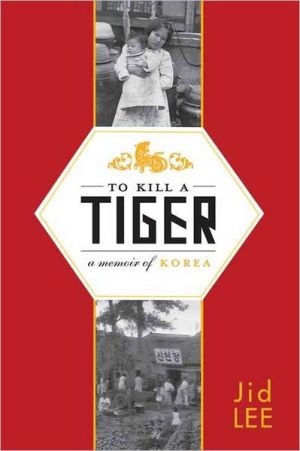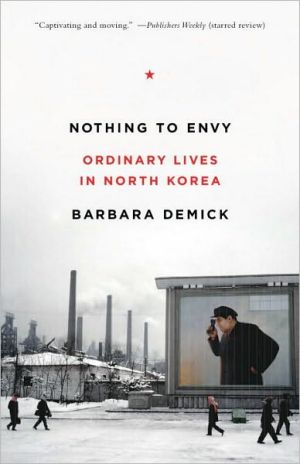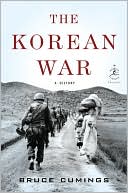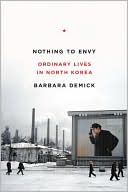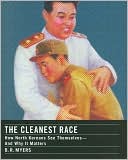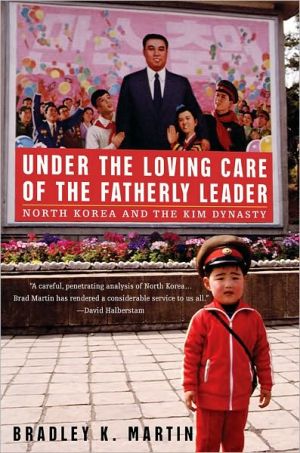To Kill a Tiger: A Memoir of Korea
An unforgettable memoir weaving the author's childhood with five generations of Korean history\ Against the backdrop of modern Korea's violent and tumultuous history, To Kill A Tiger is a searing portrait of a woman and a society in the midst of violent change. Drawing on Korean legend and myth, as well as an Asian woman's unique perspective on the United States, Lee weaves her compelling personal narrative with a collective and accessible history of modern Korea, from Japanese colonialism to...
Search in google:
Against the backdrop of modern Korea's violent and tumultuous history, To Kill A Tiger relates not only one woman's story, but also an ancient people's journey into the modern, globalized world.Drawing on Korean legend and myth, as well as an Asian woman's unique perspective on the United States, Lee has written a searing portrait of a woman and a society in the midst of violent change. Lee weaves her compelling personal narrative with a collective and accessible history of modern Korea, from Japanese colonialism to war-era comfort women, from the genocide of the Korean War to the government persecution and silence of Cold War-era pogroms. The ritual of storytelling, which the author shares with the women of her family, serves as a window into a five-generation family saga, and it is through storytelling that Lee comes to appreciate the sacrifices of her ancestors and her own now American place in her family and society.In To Kill a Tiger Lee provides a revelatory look at war and modernization in her native country, a story of personal growth, and a tribute to the culture that formed her. Kirkus Reviews Memoir of growing up female in the male-dominated Korean culture of the 1960s and '70s. Lee's grim book borrows its title from a myth that one of her grandmothers-many greats removed-sacrificed herself to be eaten alive by a tiger in exchange for her descendents' prosperity. The author grew up feeling equally constrained, as if she had been swallowed, oppressed by gross gender inequality and verbal abuse. Lee (English/Middle Tennessee State Univ.; From the Promised Land to Home: Trajectories of Selfhood in Asian-American Women's Autobiography, 1998) structures the narrative chronologically, beginning with her memories of early life in Taegu, where her family struggled to make ends meet. Lee also had close brushes with violence, both in and outside of her home, and once witnessed a group of boys stoning an abandoned baby to death. Filled with secondhand tales about family members she's never met, the chapters fail to connect with each other. An unsuccessful revolutionary, her embittered, tyrannical father was obsessed with replacing the dynasty with a republic, spewing invective toward the United States and scathing disregard toward women. In at attempt to "surpass Mother and Grandmother in self-denial," Lee beginning starving herself from a young age. She regretted not having been born a boy and did poorly in school. In 1969 the beleaguered family moved to Seoul, and Lee cuts back and forth between rough-hewn descriptions of their domestic life, including her sister's joyless marriage to a man chosen by their father, and her views on the country's government, Christianity, socialist feminists and the educational system. In 1980, after graduating from college, she moved to New York,becoming a U.S. citizen in 1989. A bleak, disappointingly facile portrait.
A Note on Authenticity 9A Woman Who Wished to Be Eaten Alive by a Tiger 11The Stolen Grapes 16My Little Dog 28Love Thy Enemy,They Say 35Peppers 45Exiled in His Own Country 62Stealing a Dream 75The Good Vampires 80Summer Perils 88Under the Gun 101Dead Man Speaks 112Shakespeare on a Grass Roof 122Love in a Dust Storm 144To Seoul 156A Woman Who Flew Down from the Moon 166My Mother's Daughter 188Aunt Minsoon, the Comfort Woman 208Women Whose Marriages to the Gods Were Successful 227Battle Fatigue 241They Were Nice Fellows 262No Gun Ri 267Conjure the Devil 274Lucid Dreaming 285Homeward Bound 290Love Made Me Grow Tall 306My Father's Daughter 313An Amaryllis in a Stone Field 326Hope for Reunion 333No-Name State 341Acknowledgments 345Index 347
\ Kirkus ReviewsMemoir of growing up female in the male-dominated Korean culture of the 1960s and '70s. Lee's grim book borrows its title from a myth that one of her grandmothers-many greats removed-sacrificed herself to be eaten alive by a tiger in exchange for her descendents' prosperity. The author grew up feeling equally constrained, as if she had been swallowed, oppressed by gross gender inequality and verbal abuse. Lee (English/Middle Tennessee State Univ.; From the Promised Land to Home: Trajectories of Selfhood in Asian-American Women's Autobiography, 1998) structures the narrative chronologically, beginning with her memories of early life in Taegu, where her family struggled to make ends meet. Lee also had close brushes with violence, both in and outside of her home, and once witnessed a group of boys stoning an abandoned baby to death. Filled with secondhand tales about family members she's never met, the chapters fail to connect with each other. An unsuccessful revolutionary, her embittered, tyrannical father was obsessed with replacing the dynasty with a republic, spewing invective toward the United States and scathing disregard toward women. In at attempt to "surpass Mother and Grandmother in self-denial," Lee beginning starving herself from a young age. She regretted not having been born a boy and did poorly in school. In 1969 the beleaguered family moved to Seoul, and Lee cuts back and forth between rough-hewn descriptions of their domestic life, including her sister's joyless marriage to a man chosen by their father, and her views on the country's government, Christianity, socialist feminists and the educational system. In 1980, after graduating from college, she moved to New York,becoming a U.S. citizen in 1989. A bleak, disappointingly facile portrait.\ \
